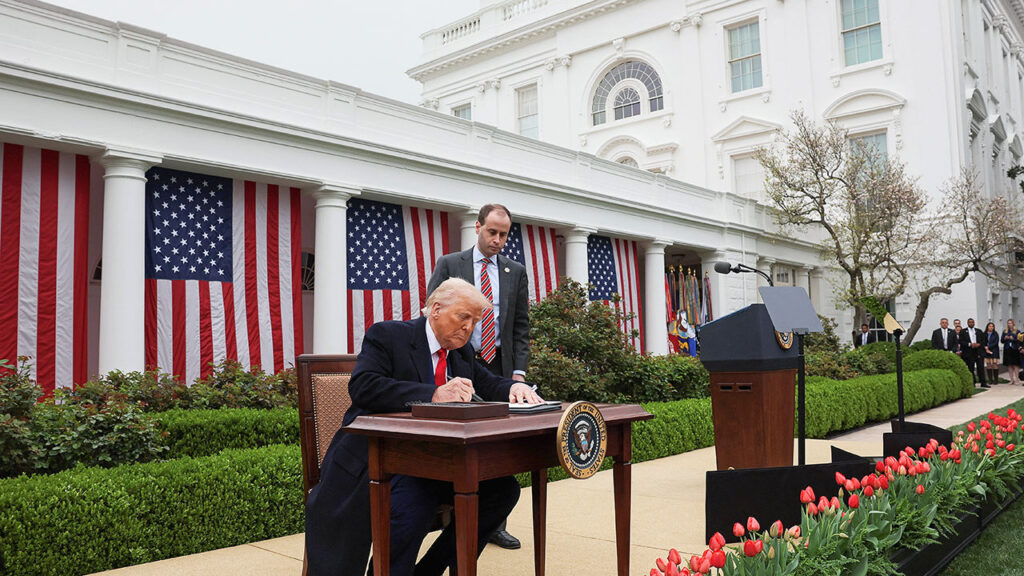In an unexpected turn of events, Donald Trump has dramatically altered the landscape of American economic policy by implementing unprecedented tariffs. On April 2, 2023, from the iconic Rose Garden at the White House, he made an emphatic announcement that has sent ripples through financial markets and trade relationships alike. Trump proclaimed a blanket 10% tariff on all imports entering the United States, alongside the introduction of higher “reciprocal” rates aimed specifically at countries he believes have treated the U.S. unfairly. This decisive move has reignited debates about trade, protectionism, and economic strategy in the modern age.
The implications of Trump’s tariff hikes extend beyond just individual import costs. They reflect a broader philosophy reminiscent of protectionist policies that were widespread in the late 19th century. By prioritizing domestic production and shielding American industries from foreign competition, Trump aims to bolster national interests at a time when global economic dynamics are shifting dramatically. This protective wall is emblematic of a notable change from the globalist approach that characterized the previous administration’s trade policies, which often prioritized free trade and multilateral agreements over unilateral actions.
Since his return to the White House, Trump has not only introduced these sweeping tariffs but has also announced several other measures aimed at renegotiating trade terms with key trading partners. The scale of these tariffs—acting as direct financial penalties on imported goods—has raised significant concerns among economists and business leaders. The increasing cost of imports is likely to impact U.S. consumers, who may face higher prices for everyday goods and essential products. As tariffs raise import prices, the effect may cascade down the supply chain, influencing retail prices and consumer behavior at a national level.
As with any major policy shift, the consequences are multifaceted. Supporters of Trump’s tariff strategy argue it will protect American jobs and manufacturing capabilities, promoting economic growth and reducing dependence on foreign imports. Conversely, critics inside and outside of the United States warn that these tariffs may provoke retaliatory measures from other nations, potentially igniting a trade war that could destabilize the global economy. Such a trade conflict could have dire repercussions, not just for international relationships, but also for U.S. farmers, manufacturers, and exporters who rely on foreign markets.
Moreover, the decision to deploy tariffs may reshape alliances and existing trade agreements. Countries affected by the tariff hikes may seek to bolster their own domestic industries by retaliating against American exports or entering into new agreements outside of U.S. influence. The risk of escalating trade tensions could compel countries to rethink their dependence on U.S. markets, potentially leading to a fragmented and less collaborative global trade environment.
In response to these policy changes, various sectors of the economy have begun recalibrating their strategies. Businesses that rely heavily on imported components might face tough decisions about raising prices or absorbing increased costs. Industries like agriculture could find themselves navigating a new reality where previously established markets become distant due to retaliatory tariffs imposed by countries like China or the European Union. Farmers and ranchers, who benefit significantly from exports, might face reduced demand due to blocked access to international markets that are now more protective.
In summary, Donald Trump’s recent imposition of widespread tariffs marks a significant and polarizing change in American economic policy. By enacting these measures, he is positioning the U.S. for a more protectionist stance in an increasingly complex global landscape. Whether these tariffs will achieve their intended goals or lead to unintended consequences remains to be seen, but the impact of this policy shift on the American economy and international relationships will undoubtedly command attention in the coming months.









